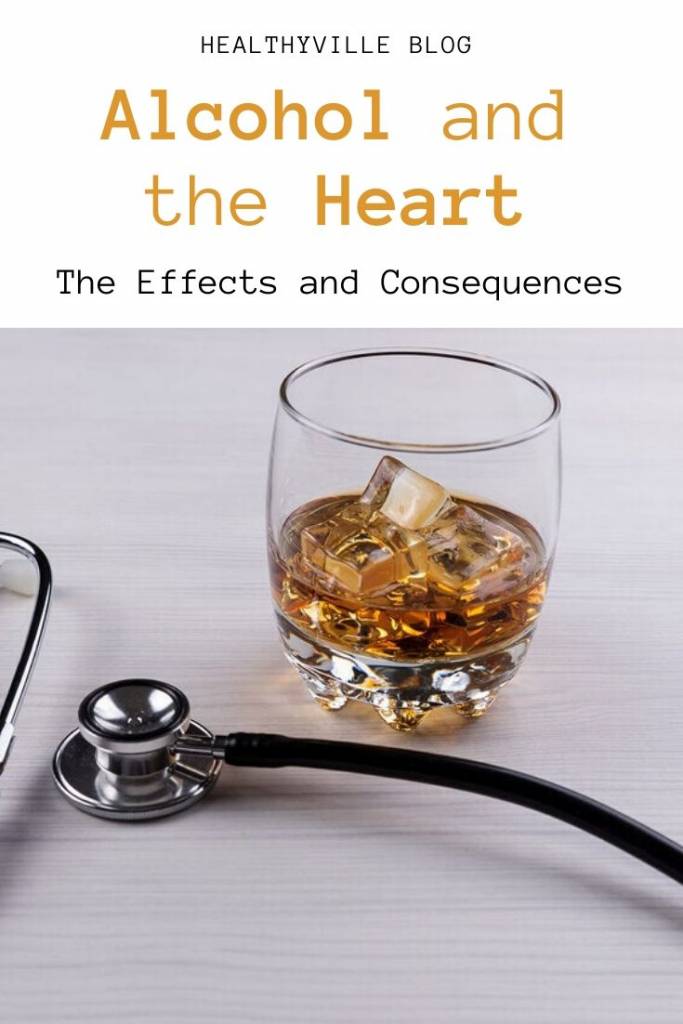Alcohol and the heart can be quite a combo if you consume it moderately… If not, though, there can be consequences that can do enormous damage. Learn why.
The effects of alcohol on the heart can be positive. That is as long as it is ingested in a controlled manner and with the appropriate frequency. They could also be highly harmful, and even lead to death, if ingested in high volumes, under certain circumstances.
At present, there is some confusion surrounding the effects of alcohol on the heart. There is information that suggests that drinking wine or beer, in a moderate way, contributes to cardiovascular health. At the same time, there are studies that talk about the harmful effects of this type of drinks on the heart.
Actually, both data are true. The effects of alcohol on the heart are varied. They depend on the health status of each person, the amounts and frequencies with which it is ingested, as well as the type of liquor consumed.
Anyway, there is something that has no discussion. The effects of alcohol on the heart and other organs are very negative, and even devastating, when consumed in large volumes. It is also a psychoactive that can cause dependence and significantly deteriorate the quality of life.
Myths and truths about alcohol and the heart
Some studies suggest that, in moderate amounts, some alcoholic beverages may be beneficial for cardiovascular health. However, the evidence is not entirely conclusive.
There is evidence that the effects of alcohol on the heart can be positive. Wine, for example, has a high antioxidant content (flavonoids, tannins, anthocyanins and resveratrol). These substances contribute to preventing the formation of plaque in the arteries (atherosclerosis). Likewise, they favor the production of “good cholesterol”.
It has been said that drinking a glass of wine a day could have those positive effects. However, a study published in the Journal of the American College of Cardiology notes that while these positive effects are real, it is also real that alcohol consumption, even moderately, increases the risk of causing irregular heartbeats.
Another study, advanced by Professor Peter Kistler, of the Baker IDI Heart and Diabetes Institute and Alfred Hospital in Melbourne (Australia), points out the same. It indicates that while moderate alcohol consumption can help keep “the pipes” of the body clear, it can instead affect the electrical parts of the heart, in particular, the rhythm of the heartbeat.
Drinking moderately and drinking too much
There is much talk about the importance of drinking alcohol moderately, and yet it is not very clear what is moderate and what is excessive. Against this point, the first thing that should be taken into account is the health status of each person. A diabetic, or hypertensive person, for example, should avoid alcohol, even in moderate amounts.
On the other hand, the frequency also affects. It is much more harmful to drink alcohol in large quantities, even if this is only occasionally. Drinking more than five glasses of alcohol, in the case of men, or four, in the case of women, increases the risk of strokes and sudden death.
In the Dietary Guidelines of the US Department of Health it is noted that a moderate consumption is maximum one drink a day for women and two for men. However, a good number of experts point out that it is best not to drink daily, but to avoid alcohol two or three days a week.
There is talk of “a glass” when it corresponds to 4 ounces of wine, 12 of beer, 1.5 ounces of beverages with an alcoholic graduation of 40 °, or 1 fluid ounce of drinks with a graduation of 50 °.
Atrial fibrillation
Alcohol consumption can cause heart rhythm disturbances, especially in those who ingest it frequently and excessively.
One of the risks of alcohol consumption, even in moderate amounts, is the fact that this substance contributes to irregular heartbeats, as we have already noted. Alcohol can damage cells and cause fibrous tissue to form in the heart, thereby altering the beat.
Likewise, alcohol can alter the way the heart cells contract and, over time, lead to irregular heartbeats. In the same way, it affects the autonomic nervous system, which controls, among other aspects, the rhythm of the beats.
This condition, called atrial fibrillation, increases the risk of serious problems such as heart failure or stroke. It appears in some of those who drink moderately, frequently, and in 60% of people after excessive intake.
Other effects
In some people, excessive alcohol consumption can weaken the heart muscle and cause a disease called dilated cardiomyopathy. In this, the heart dilates and decreases its pumping force, which causes symptoms of heart failure.
Alcohol also contributes to obesity and this increases the risks of heart problems. Also, frequent and excessive alcohol consumption increases by two the chances of suffering from hypertension. The combination of alcohol and psychoactive drugs can be deadly.
Don’t forget to SHARE the info about alcohol and the heart with your friends and family on your social networks!

